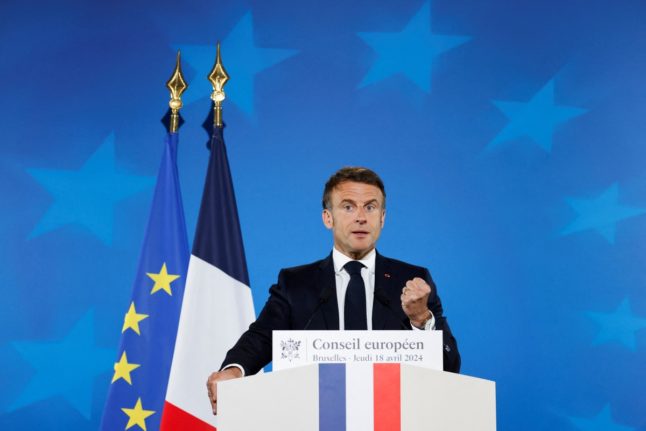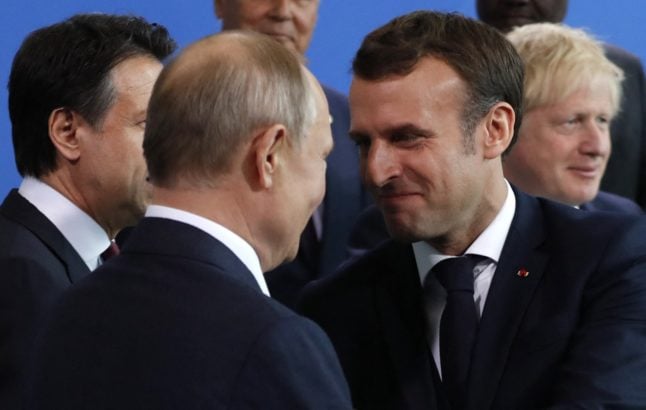There is a paradox at the heart of Macronism. The President was elected in 2017 as a young, white-collar revolutionary who would detonate France’s repressed energy by scrapping the stifling, consensus politics of centre-left and centre-right.
And yet the profile of his voters has become progressively older. His most loyal supporters are the status-quo loving over-60s – or rather they have been until now.
One of the most striking aspects of the disastrous opinion poll results for the President’s centrist alliance before the June 9th European elections is the desertion of part of Macron’s grey army.
At the 2022 Presidential election, 39 percent of over-65s voted for Macron in the first round, compared to 28 percent in the wider electorate.
Without the oldies, Macron might have come second to Marine Le Pen in the first round two years ago. The second-round run-off, which was won 58.5-41.5 percent by Macron, would have been a very close-run thing.
In the polling before the European elections, the lead candidate for Macron’s Renew alliance, Valérie Heyer, is running neck and neck in the “grey” vote with Jordan Bardella, the lead candidate of Marine Le Pen’s Rassemblement National.
They are on 25 percent each among the over-65s in an Ipsos poll for La Tribune.
READ ALSO Can foreign residents in France vote in European elections?
Older voters are prized by political parties because they are reliable voters. No longer, it seems. Something like half the over-65s who voted for Macron in 2022 say they won’t bother to leave home on Sunday June 9th.
The shifts in the old vote largely explains why Le Pen’s camp is leading Macron’s camp overall by 14 to 15 points – roughly 32 percent to 17 percent – a score which will have seismic consequences for French politics if confirmed in 45 days’ time.
Why are the oldies so angry with the government? Here lies another paradox.
Macron, the youngest ever President of the Fifth Republic, with the youngest ever Prime Minister, has been kind to oldies (including myself). Rather than a “President of the Getting-on-well”, he has been a “President of the Getting-on-a-Bit”.
His unpopular (but necessary) pension reform was intended, in part, to protect the comfortable pensions of those already retired.
The two Covid lockdowns (probably necessary) protected the old at the expense of the liberty of the young.
The President recently shot down the idea of a one-year freeze on pensions which would have filled the €15 billion hole in the French state budget this year.
Why then so many grumpy old men and women?
One minister blames the constant drum-beat of alarm and despondency in the 24-hour TV news channels. “Retired people are sitting in front of their televisions all day and watching images of a country they no longer recognise,” he says.
Maybe. It is natural that older people are anxious about security and inflation. They also disapprove of the fact that Macron has let the country’s finances spin out of control (but forget that they benefited from the government’s open cheque book during the Covid crisis and the energy inflation caused by the Ukraine war.)
Another striking feature of the opinion polls has been the resurrection of the centre-left, which appeared to be extinct after the Socialist candidate, Anne Hidalgo, scored only 1.75 percent in the first round of the presidential election two years ago. The Socialist champion in the European elections, Raphael Glucksmann, is running at around 12 percent and vaguely threatening to push Macron’s camp into third place.
Is this the beginning of the end of the pro-European New Centre created by Macron in 2017? Is France, which invented the terms Left and Right, lurching back towards binary Left-Right politics?
I doubt it. Glucksmann will not be a candidate in 2027; no convincing moderate politician is yet emerging to challenge the death grip on the Left of the radical, anti-European Jean-Luc Mélenchon. This is a space worth watching, all the same.
In the remaining six weeks of the European campaign, Macron’s strategy will be two-fold. He will finally get involved. He will try to remind voters that European elections are about Europe.
Starting with a big speech on the future of the EU at the Sorbonne university on Thursday, he will seek to persuade the French electorate that Le Pen is a leap into muddle and darkness and that a stronger EU is their best protection in a scary world.
Above all, Macron will try in the weeks ahead to persuade the pro-European over-65s to continue the habit of a lifetime and turn out on June 9th. He may have limited success. Le Pen’s party performs better in polls than in elections. The most recent polls shows a slight narrowing of Bardella’s lead.
But 14 points is a big gap to close in six weeks. Whatever Macron may say in his speech, most French voters, young or old, do not see this as a European election. They see it as a free-hit: a chance to bash Macron after seven years without running the risk of electing a Far Right government.
They may be wrong about that.
A Macron “defeat” by ten points or more on June 9th will increase the chances of a successful censure motion against the government in the National Assembly this summer. Macron will refuse to call an election just before the Paris Olympics. He will prolong the crisis until September when the Gabriel Attal government might fall.
We could be heading for a messy, parliamentary election in France this Autumn – at the same time as a potentially cataclysmic election in the United States and a very predictable election in the UK.



 Please whitelist us to continue reading.
Please whitelist us to continue reading.
As a senior citizen I can assure you me and my friends never sit around worrying about how the state’s finances are “spinning out of control”. A nonsense explanation for “grumpy”.
We sit around talking about how Macron has gutted social services for us, and how he hasn’t indexed our pensions to inflation, which is at RECORDS. This is why we’re “grumpy” – i.e. sad, worried and poor. I don’t think Litchfield knows people like this, or cares about them. Sick of his budget deficit obsession.